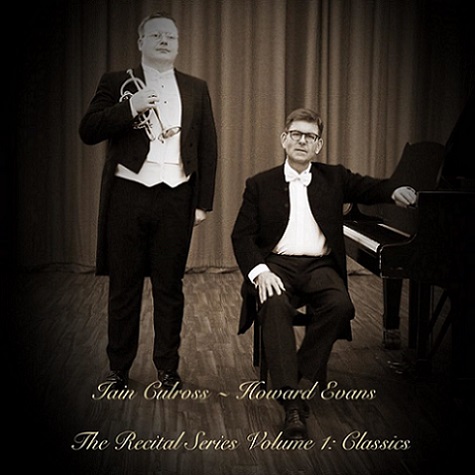

The ‘classic’ foundations of solo repertoire for the cornet were laid well over a century ago.
The late Victorian/early Edwardian era taste for musical romanticism suited the technical as well as tonal range of an instrument that had already been mastered by exponents across the globe.
Virtuoso performers
The emergence of virtuoso performers aided its popularity - from brass bands stars such as Owen, Paley and Firth to the academic explorations of the French School of Arban, Balay and Pares. The New World dazzlers of Jules Levy (although born in England) and Herbert Clarke found counterparts in antipodean performers such as Hugh McMahon and Percy Code.
Sullivan’s ‘The Lost Chord’ was written five days before his brother’s death in January 1877, performed in public just days later, and published within the following month.
Each made their mark on increasingly ornate air-varies and concert pieces, as well as the ‘parlour songs’ and ‘hits’ from operetta shows that were printed almost as soon as they were first heard on the stage. Sullivan’s ‘The Lost Chord’ was written five days before his brother’s death in January 1877, performed in public just days later, and published within the following month.
A countless number have been lost through the passage of time, but it is still remarkable that a core retain their stature and sense of originality a century more after they were written.
Acute sense
Iain Culross explores this heritage with an acute sense of musical appreciation; the virtuosity tempered with the occasional, sparkling modernist flourish, the lyricism considered in its warm tonality.
Neatly recorded (even the cover image has a touch of sepia tinted Flanders & Swann about it), there is a tensile link between the performers (with wonderful accompaniment by Howard Evans) that gives each piece a natural pacing of musical malleability.
Iain Culross explores this heritage with an acute sense of musical appreciation; the virtuosity tempered with the occasional, sparkling modernist flourish, the lyricism considered in its warm tonality.
A measured stamp of ornate bravura is displayed in Arban’s ‘Variations Sur Le Carneval de Venise’, Clarke’s ‘The Debutante’, Levy’s ‘Grand Russian Fantasia’ and Hohne’s ‘Slavische Fantasie’. The lyrical impressions, tenderly sentimental but saccharin-free, left by Marshall’s ‘I Hear you Calling Me’, Sullivan’s ‘The Lost Chord’ and Maybrick’s ‘The Holy City’ balance things nicely.
There is also an academic rigour to Brandt’s ‘Concertpiece No.2’ and the Bohme ‘Concerto in F Minor’ – both of which have become staples of student study as well as hallmarks of performer quality, whilst the tasteful delivery of ‘Macushla’ will have fans of the great Irish lyric tenor John McCormack nodding in appreciation.
Iwan Fox
To purchase:
https://www.brassnet.co.uk/idc/media-pages/recordings/introducing-the-recital-series/classics-volume-1/
Play list:
1. Variations sur Le Carneval de Venise (Arban)
2. I Hear You Calling Me (Marshall)
3. Concerto in F Minor (Bohme)
i. Allegro Moderato
ii. Andante Religioso
iii. Allegro Scherzando
6. Concertpiece No.2 (Brandt)
7. Macushla (MacMurrough)
8. Grand Russian Fantasia (Levy)
9. The Lost Chord (Sullivan)
10. The Debutante (Clarke)
11. The Holy City (Maybrick)
12. Slavische Fantasie (Hohne)









